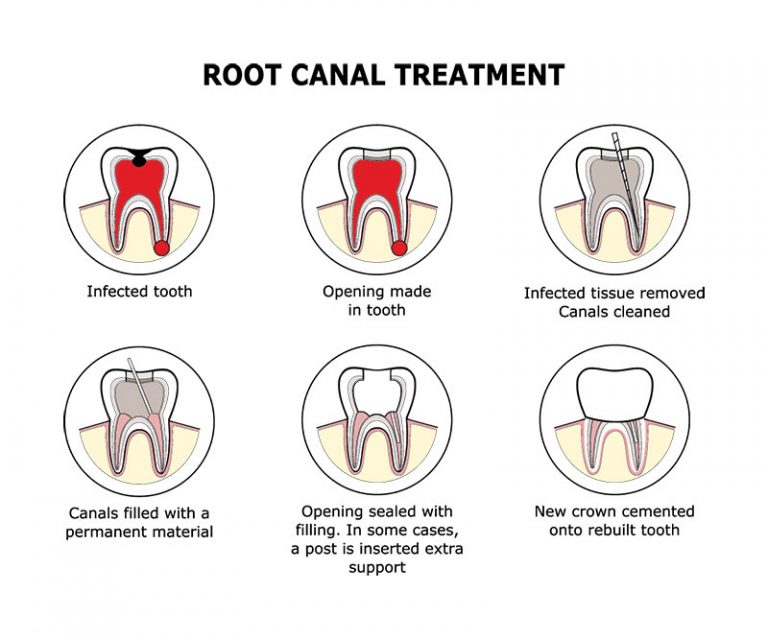St. Jacobs Root Canal Therapy
Dental Health and Root Canals
In the past, if you had a tooth with a diseased nerve, you would probably lose that tooth. Today, with a special dental procedure called root canal treatment, your tooth can be saved. Root canals are a relatively simple procedure that entails one to three office visits. Best of all, having a root canal when necessary can save your tooth and your smile!
What is the purpose of a root canal?
A tooth’s nerve is not vitally important to a tooth’s health and function after it has emerged through the gums. Its only function is sensory – to convey the sensation of hot or cold. The presence or absence of a nerve will not affect the day-to-day functioning of your tooth.
When a tooth is cracked or has a deep cavity, bacteria can enter the pulp tissue, and germs can cause an infection inside the tooth. If left untreated, an abscess may form. If the infected tissue is not removed, pain and swelling can result. This can not only injure your jawbones, but it is detrimental to your overall health. Without the proper treatment, your tooth may have to be removed.
What are the signs that a root canal is needed?
Teeth that require root canal therapy are not always painful. However, signs you may need a root canal include severe toothache, pain upon chewing or application of pressure, prolonged sensitivity or pain in response to hot and cold temperatures, a dark discoloration of the tooth, and swelling and tenderness in the nearby gums. If you experience any of these symptoms, contact your doctor.
What happens during a root canal?
Root canal treatment involves one to three visits. During treatment, your general dentist or endodontist (a dentist who specializes in problems with the nerves of the teeth) removes the affected tissue. Next, the interior of the tooth will be cleaned and sealed. Finally, the tooth is filled with a dental composite.
If your tooth had extensive decay, your doctor may suggest placing a crown to strengthen and protect the tooth from breakage. As long as you continue to care for your teeth and gums with regular brushing, flossing, and checkups, your restored tooth can last a lifetime.
What care follows the treatment?
Once the root canal treatment has been completed, you hsould consider the following:
- Brittleness
A non-vital (endodontically treated) tooth is more brittle than a vital one and is more susceptible to fracture. Therefore, in most cases, we recommend that your root canal tooth be crowned (capped) following treatment. - Discoloration
You may notice that your endodontically treated tooth (especially a front tooth) has undergone a change in colour. Though this discolouration is of no medical concern, you may be interested in having the tooth whitened. Be sure to ask us about tooth whitening if we do not decide to place a crown on the tooth.





